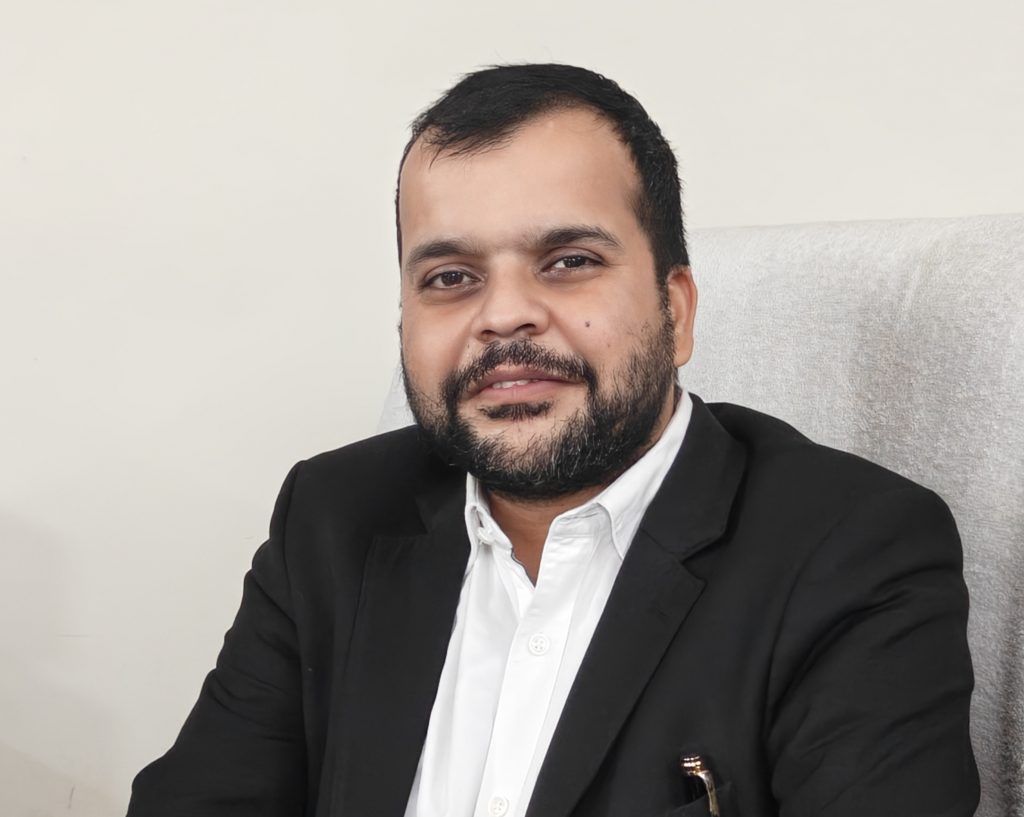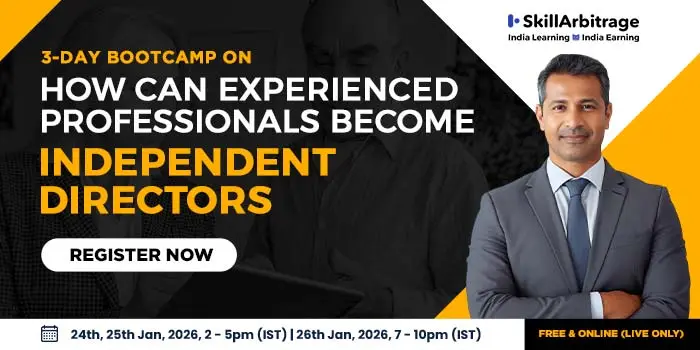This interview has been published by Anshi Mudgal and The SuperLawyer Team

Having graduated from NUALS, Kerala, and starting your practice directly before the Hon’ble Supreme Court of India, what inspired you to pursue such a high-stakes litigation career so early on ?
My decision to pursue litigation particularly by starting directly at the Supreme Court was rooted in both personal ambition and the exposure I received during law school. Coming from a first-generation legal background, I didn’t have familial connections in the profession. That absence could have been a limitation, but in many ways, it became a motivator.
A key factor that empowered me was the strong support of my family, especially my elder brother. His advice and encouragement played a crucial role in helping me make bold career decisions, including the step to begin my practice at the apex court. His belief in my potential gave me the confidence to pursue a path that was unconventional and challenging.
During law school, I had the opportunity to intern with a diverse set of accomplished lawyers. These experiences offered me valuable exposure to different styles of practice and deepened my understanding of litigation as more than just dispute resolution. I saw firsthand how litigation can serve as a powerful tool, not just for individual justice, but for broader policy reform and societal impact.
What truly attracted me to litigation was its intellectually rigorous nature. It demands more than a sound understanding of the law; it calls for strategic thinking, creativity in argumentation, and a deep sense of ethical responsibility.
Starting out at the Supreme Court was undoubtedly intimidating, but it gave me a unique opportunity to engage with complex, high-stakes matters early in my career. I was able to learn directly from senior advocates and constitutional experts. While building a reputation from scratch came with its own set of hurdles, the process made me more resilient, disciplined, and committed to the principles of justice.
What were some key challenges and lessons you learned while transitioning from working with an Advocate-on-Record to establishing your own practice in 2016, and later founding Scripta Lex Law Firm in 2018?
The transition was both challenging and transformative. One major hurdle was building a client base from the ground up. As a first-generation lawyer, I lacked industry connections and had to rely solely on the quality of my work and my ability to earn trust.
Running an independent practice also introduced me to the administrative side of law budgeting, staffing, operations, and more. Shifting from solely legal work to managing a full-fledged firm required developing a new skill set quickly.
The most valuable lesson I learned was the importance of building and nurturing relationships. In the absence of a network, I made a conscious effort to connect with senior counsel, peers, and clients. Legal expertise is essential, but trust and communication are what sustain a practice.
Running my own firm has also taught me to take full ownership of every case. Beyond legal strategy, I now consider a client’s broader goals and circumstances. It’s given me a holistic approach and a deeper understanding of how to lead both in the courtroom and within my firm.
As a qualified Advocate-on-Record (AOR), what are the unique responsibilities that come with the role, and how do they affect your practice?
Being an AOR comes with significant responsibility. Only AORs have the right to file documents before the Supreme Court, which means every filing must be flawless in terms of format, compliance, and timing.
As an AOR, I’m also the official point of contact between the client and the Court. This means that my role extends beyond documentation, I must ensure that clients are informed, and expectations are managed appropriately.
This responsibility has enhanced my attention to detail and refined my organizational skills. It has also deepened my appreciation for the precision and professionalism that the Supreme Court demands, ultimately shaping me into a more disciplined and reliable practitioner.
You have significant experience across varied forums, Supreme Court, High Courts, NCLT/NCLAT, NCDRC, and more. How do you approach such diverse jurisdictions and areas of law? Which field has evolved the most in the last decade?
Each forum requires a distinct approach. At the Supreme Court and High Courts, cases often involve constitutional or public interest elements. These require legal foresight and arguments that resonate at a policy level.
In contrast, corporate forums like NCLT/NCLAT demand a deep understanding of statutory frameworks like the Insolvency and Bankruptcy Code (IBC). I frequently collaborate with financial experts to address the commercial realities involved.
In the NCDRC, which deals with consumer disputes, the emphasis is on practical solutions and timely resolutions. These forums call for clarity, efficiency, and client-centric approaches.
Among all, Insolvency Law has evolved the most over the past decade. The IBC has transformed corporate debt resolution in India. As it continues to evolve through amendments and judicial interpretation, staying updated and agile is crucial.
Consumer Law has also seen major developments, especially with the growth of e-commerce. The introduction of the Consumer Protection (E-Commerce) Rules, 2020, reflects this shift and has changed how we approach digital consumer disputes.
Navigating these forums successfully demands continuous learning, adaptability, and cross-disciplinary collaboration.
With your expertise over various aspects, can you share a defining case that shaped your outlook on litigation?
One defining case was a complex corporate insolvency matter under the IBC before the NCLT. The company in question had multiple stakeholders each with competing interests. The legal issues were intricate, but so were the financial and strategic considerations.
What made the case significant was its timing, it occurred when the IBC was still evolving. We were navigating uncharted waters, relying on fresh judicial interpretations and creative legal solutions.
This case reinforced my belief that litigation isn’t just about resolving disputes; it’s about contributing to systemic and economic recovery. Lawyers play a vital role in shaping not only legal outcomes but also financial futures and social stability.
What gaps do you see in consumer awareness, and how should the Consumer Protection framework evolve?
A major gap lies in the lack of awareness, especially in rural and underserved areas. Many people don’t know their basic consumer rights or how to seek redress. Even in urban areas, legal processes can seem intimidating and inaccessible.
With digital commerce, new challenges like cross-border transactions, misleading ads, and jurisdictional issues have emerged.
To address these, the framework must evolve by:
- Expanding legal literacy through targeted outreach programs
- Simplifying online complaint processes
- Strengthening digital consumer protection mechanisms
- Enhancing enforcement to ensure timely justice
- Creating user-friendly forums for efficient dispute resolution
Improving access and responsiveness will help make the system more inclusive and effective.
How do you balance pro bono commitments with your commercial practice?
For me, pro bono work is not just a commitment, it’s a principle. I believe access to justice should never be determined by one’s ability to pay.
Balancing both requires discipline. I set aside dedicated time and ensure that pro bono matters are managed with the same attention as commercial cases. In fact, these cases often sharpen my empathy and creativity, enriching my approach to complex commercial matters as well.
Pro bono work reminds me why I chose this profession—to make a meaningful impact. It grounds me and enhances the human side of my legal practice.
Where do you see the greatest opportunities for young legal professionals today?
There’s immense opportunity in emerging areas like data privacy, technology law, and insolvency law. With growing digital transactions and evolving privacy concerns, lawyers with expertise in tech-law intersections are in high demand.
The IBC continues to offer opportunities in corporate restructuring, cross-border insolvency, and distressed asset resolution.
Young lawyers should focus on:
- Staying updated with legal-tech trends
- Carving niches in emerging fields
- Embracing specialization
- Building digital fluency alongside legal expertise
Those who adapt early to these trends will be best positioned to lead the future of legal practice.
What advice would you give to law students or young advocates entering litigation?
- Master the basics: Strong fundamentals are your best asset.
- Seek mentorship: Learn from seasoned lawyers—it shapes your growth.
- Be patient: Litigation is a long journey; focus on consistency and credibility.
- Build relationships: Clients value trust, not just technical knowledge.
- Work in teams: Collaborative success is sustainable success.
- Use technology: Legal tech enhances efficiency and reach.
- Specialize and build focus: Develop niche expertise to differentiate yourself. Alongside this, cultivate the habit of reading books, legal and otherwise. Deep reading enhances comprehension, critical thinking, and focus in a way that passive scrolling through social media never can.
- Take care of yourself: Mental and physical well-being are vital for long-term growth.
And most importantly stay curious, stay ethical, and stay resilient. Litigation rewards those who show up, stay prepared, and work with purpose.
Get in touch with Dushyant Tiwari –



